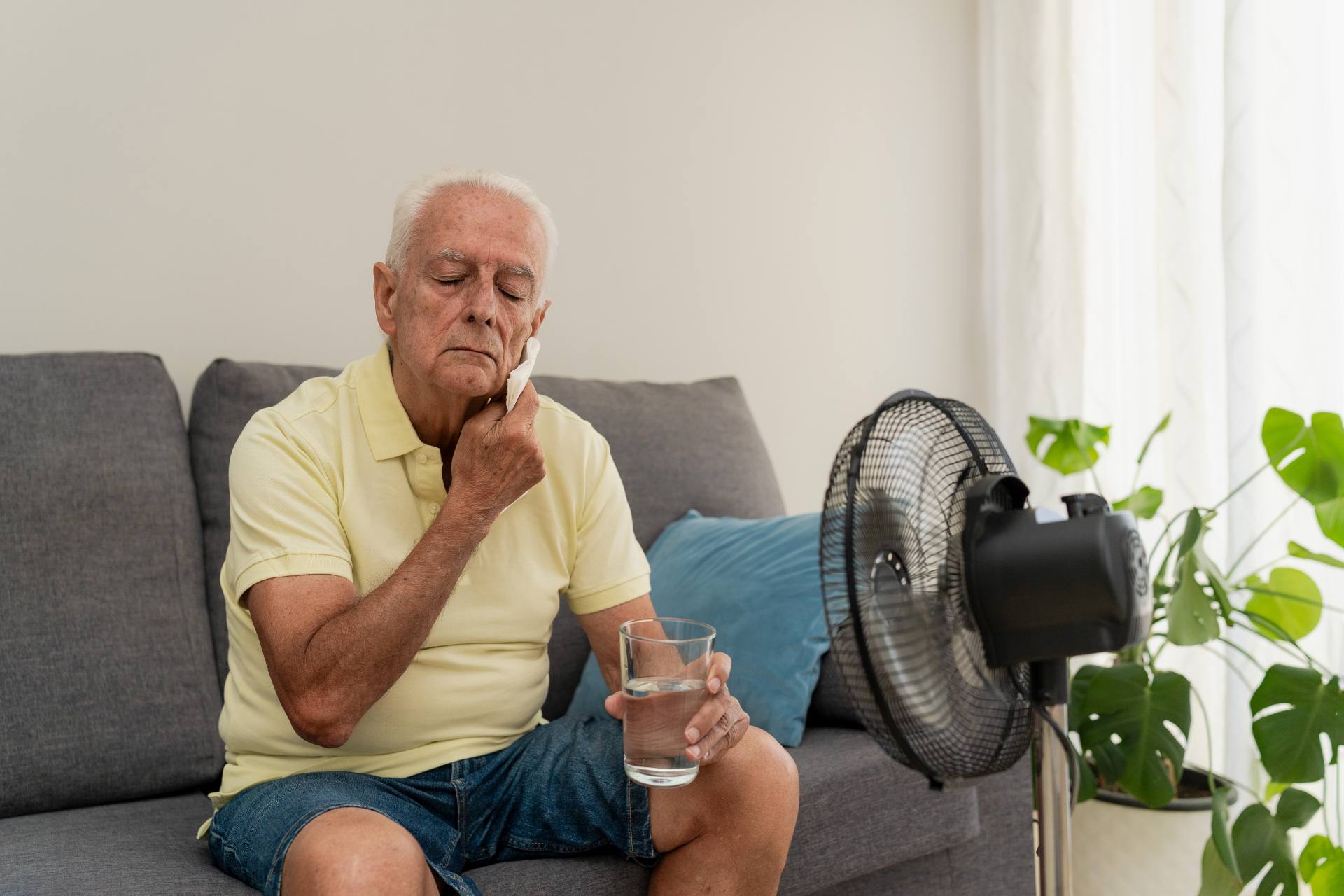
TL;DR
Heat can be dangerous for older adults due to physiological changes and chronic conditions. Staying cool, hydrated, and monitored are essential during hot weather. Learn practical steps to prevent heat-related illness and how communities like Parkwood Heights Senior Living Community prioritize wellness year-round.
Key Takeaways
- Seniors are at higher risk for heat-related illness due to aging, medications, and chronic conditions.
- Heat stroke and dehydration can escalate quickly and require immediate attention.
- Preventive strategies include hydration, cool environments, appropriate clothing, and regular check-ins.
- Parkwood Heights offers an “I’M OK” program and climate-controlled living for peace of mind.
Introduction
Warm weather brings sunshine, outdoor fun, and unfortunately, increased health risks for older adults. As temperatures climb, so does the likelihood of heat-related illness among seniors. For adult children of aging parents, knowing how to recognize and prevent these dangers is critical.
At Parkwood Heights Senior Living Community, we understand how important it is to feel safe, connected, and cared for, especially in the face of extreme heat. This article will guide you through everything you need to know to help yourself or a loved one stay protected this summer.
Why Seniors Are More Vulnerable to Heat
As we age, our bodies become less efficient at regulating temperature. Factors such as:
- Diminished sense of thirst
- Slower sweat gland activity
- Chronic conditions (like heart disease or diabetes)
- Medications that alter hydration or temperature control
…all contribute to increased sensitivity to heat.
This means that even moderately hot days can lead to dangerous health outcomes for seniors if precautions aren't taken.
Common Heat-Related Illnesses in Older Adults
Dehydration
Dehydration occurs when the body loses more fluid than it takes in. In seniors, this can happen rapidly due to decreased thirst cues and medication side effects.
Symptoms include:
- Dry mouth
- Dizziness
- Confusion
- Headache
- Fatigue
Heat Exhaustion
Heat exhaustion is the body’s response to excessive heat and insufficient hydration. It's a warning sign that needs quick intervention.
Symptoms include:
- Heavy sweating
- Weakness
- Cold, pale, clammy skin
- Fast, weak pulse
- Nausea or vomiting
Heat Stroke
Heat stroke is a medical emergency that requires immediate medical attention. It occurs when the body fails to regulate temperature entirely, often exceeding 103°F.
Symptoms include:
- Hot, dry skin (or profuse sweating)
- Rapid pulse
- Confusion or unconsciousness
- Seizures
- No longer sweating despite heat
Recognizing Warning Signs
Both caregivers and seniors should stay alert for any sudden changes in behavior or appearance during hot weather. If someone seems confused, unusually fatigued, or stops sweating, take action immediately. Better to overreact than overlook a subtle sign.
Preventive Measures to Stay Cool and Safe
Hydration Tips
- Aim for 6–8 glasses of water daily
- Avoid caffeine and alcohol
- Offer popsicles or fruit with high water content (like watermelon)
- Use hydration reminder apps or alarms
Environmental Adjustments
- Keep living spaces air-conditioned or well-ventilated
- Use fans in shaded rooms
- Keep blinds or curtains drawn during peak sun hours
- Avoid outdoor activities between 10am and 4pm
Clothing and Activity Choices
- Wear light-colored, loose-fitting clothing
- Choose breathable fabrics like cotton or linen
- Limit physical exertion
- Encourage rest during the hottest parts of the day
Check-Ins and Monitoring
- Use wellness check-ins (in-person or via call/text)
- Set reminders for medication and hydration
- Utilize community wellness programs when possible
How Parkwood Heights Supports Senior Wellness
At Parkwood Heights, protecting our residents during extreme weather is second nature. Here’s how we ensure senior wellness:
- Temperature-controlled residences designed for comfort year-round
- Full-Service Generator provides power back up to apartments, villas, and common areas, no worries when storms approach or power grid struggles
- Daily wellness checks to catch issues early
- Staff trained to recognize signs of heat distress
- Nutritious meals and snacks with hydrating options
- Indoor social and recreational activities during heat advisories
We believe peace of mind for you and your loved ones begins with a safe, caring environment.
Fun Fact & Expert Insight
Fun Fact: The human body can sweat up to 1.5 liters per hour in hot weather—that’s nearly 3 water bottles!
Expert Insight: According to the CDC, adults over age 65 account for nearly 40% of heat-related deaths annually. Staying proactive isn’t just important - it’s lifesaving.
Frequently Asked Questions (FAQ)
How can I tell if my parent is overheating?
Look for confusion, lack of sweating, flushed skin, or complaints of dizziness or nausea. Check in frequently during heatwaves.
Should older adults avoid going outside in summer?
Not necessarily. The key is timing (mornings or evenings), hydration, and appropriate clothes. Always avoid peak heat hours.
What should seniors drink besides water?
Electrolyte drinks (low sugar), diluted fruit juice, and herbal teas can help. Avoid sugary sodas or excessive caffeine.
Can medications increase heat risk?
Yes. Diuretics, blood pressure meds, and antihistamines can affect hydration or body temperature regulation. Speak with a physician.
What should I do if I suspect heat stroke?
Call 911 immediately. While waiting, move the person to a cooler space, apply cool cloths, and avoid giving fluids unless they are conscious and alert.
Conclusion
Heat-related illness is preventable, especially with the right knowledge and environment. Whether you're an active senior or a concerned family member, now is the time to take steps toward safety and wellness.
At Parkwood Heights, we offer more than just housing. We offer peace of mind, comfort, and a community that truly cares.
Ready to explore a community where safety and comfort come first? Schedule a personal tour today and discover how Parkwood Heights keeps seniors safe, cool, and cared for year-round.





